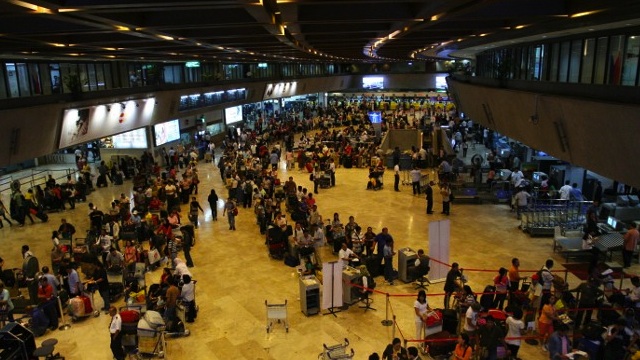SUMMARY
This is AI generated summarization, which may have errors. For context, always refer to the full article.

MANILA, Philippines – The Department of Transportation and Communication (DOTC) denied reports that the Civil Aviation Authority of the Philippines (CAAP) flunked the audit of the ICAO Coordinated Validation Mission (ICVM) team.
DOTC Secretary Joseph Emilio Abaya told Rappler via SMS on Saturday, February 23, that the team was actually going to recommend to ICAO headquarters in Montreal, the lifting of the Significant Safety Concerns issued to the Philippines.
During the Philippine Economic Briefing on February 13, Abaya said the global organization International Civil Aviation Organization (ICAO) was set to audit the CAAP on February 18.
“The ICVM team was satisfied with their observations / findings on CAAP’s efforts to comply with international safety standards and no longer sees any significant safety concerns; they will recommend to the ICAO headquarters, Montreal, the lifting of the Significant Safety Concerns issued to the Philippines. We are very confident that the ICAO will adopt/ approve the recommendation,” Abaya said.
In a statement on Saturday, February 23, Abaya said the ICAO official announcement on the lifting of the SSCs is expected to be made within two to three weeks’ time.
ICAO’s validation mission focused on two critical elements only, namely, the OPS 1 Certification of Airlines in the Philippines and the Air/7 registration of Philippine-registered civil aviation aircraft.
The other three critical elements, which are Legal, Organization and Licensing, were already satisfactorily addressed last October 2012, and, thus, were no longer validated again by the ICAO ICVM Team.
“With the lifting of the ICAO SSCs, CAAP can now focus on regaining the Federal Aviation Administration (FAA) Category 1 rating. Category 2 status is issued by the FAA to the civil aviation authorities of countries that are non-compliant to ICAO Standard And Recommended Practices (SARPs) on international civil aviation safety,” the DOTC said.
On Saturday, Palace spokesperson Abigail Valte lamented the reports that came out stating that the CAAP flunked the audit of the ICVM. Valte said the story was completely the opposite of the mission’s assessment.
“Maling-mali ‘yang istoryang ‘yan. Hinihintay ho sana namin ‘yung kanilang magiging pahayag ngunit dahil ho lumabas na itong istoryang ito, we feel duty-bound to address and to come out with the information immediately because that’s a false—that is actually a very grossly inaccurate report [That story is wrong. We were waiting for the official statement from ICAO but because the wrong story came out, we felt duty-bound to address and and to come out with the information immediately because that’s a false—that is actually a very grossly inaccurate report.],” Valte said in a radio interview.
On Friday, February 22, in the Makati Business Club forum, US Department of State Assistant Secretary Jose Fernandez said there are no shortcuts to ensuring aviation safety.
Philippine carriers, including Philippine Airlines and Cebu Pacific, are keen on the safety rating upgrade so they could mount new and additional flights to the US.
The audit results of ICAO — a United Nations agency that oversees international civil aviation — are the basis of the US Federal Aviation Administration (FAA) in deciding whether to keep or lift the Category 2 status imposed on its counterpart in the Philippines, the CAAP.
FAA downgraded the safety rating of CAAP’s predecessor in 2009 largely over issues that the CAAP is unable to implement global safety standards over aviation players that the CAAP overseas.
The European Union followed suit and also blacklisted the Philippines in 2010. – Rappler.com
Add a comment
How does this make you feel?
There are no comments yet. Add your comment to start the conversation.